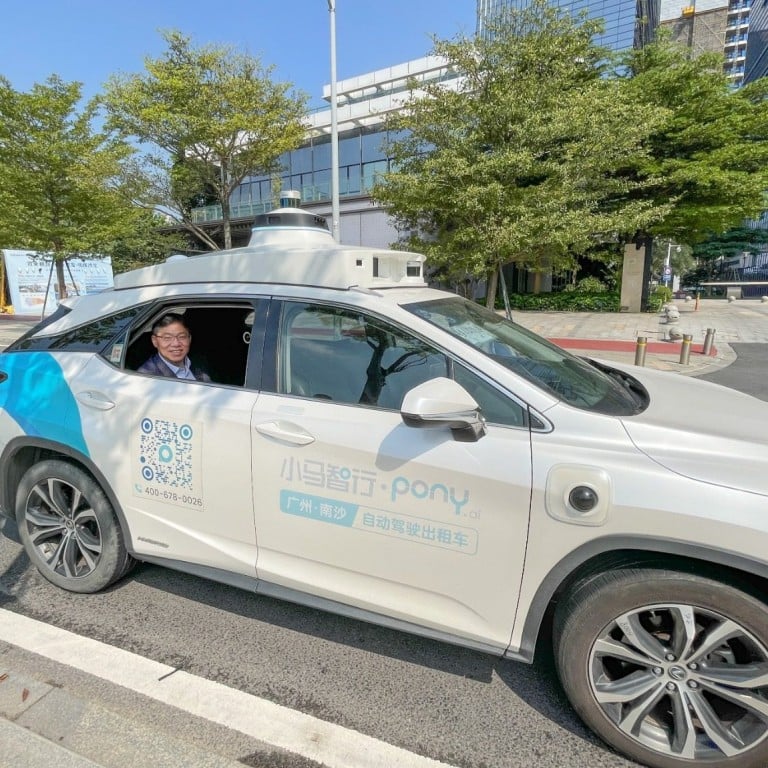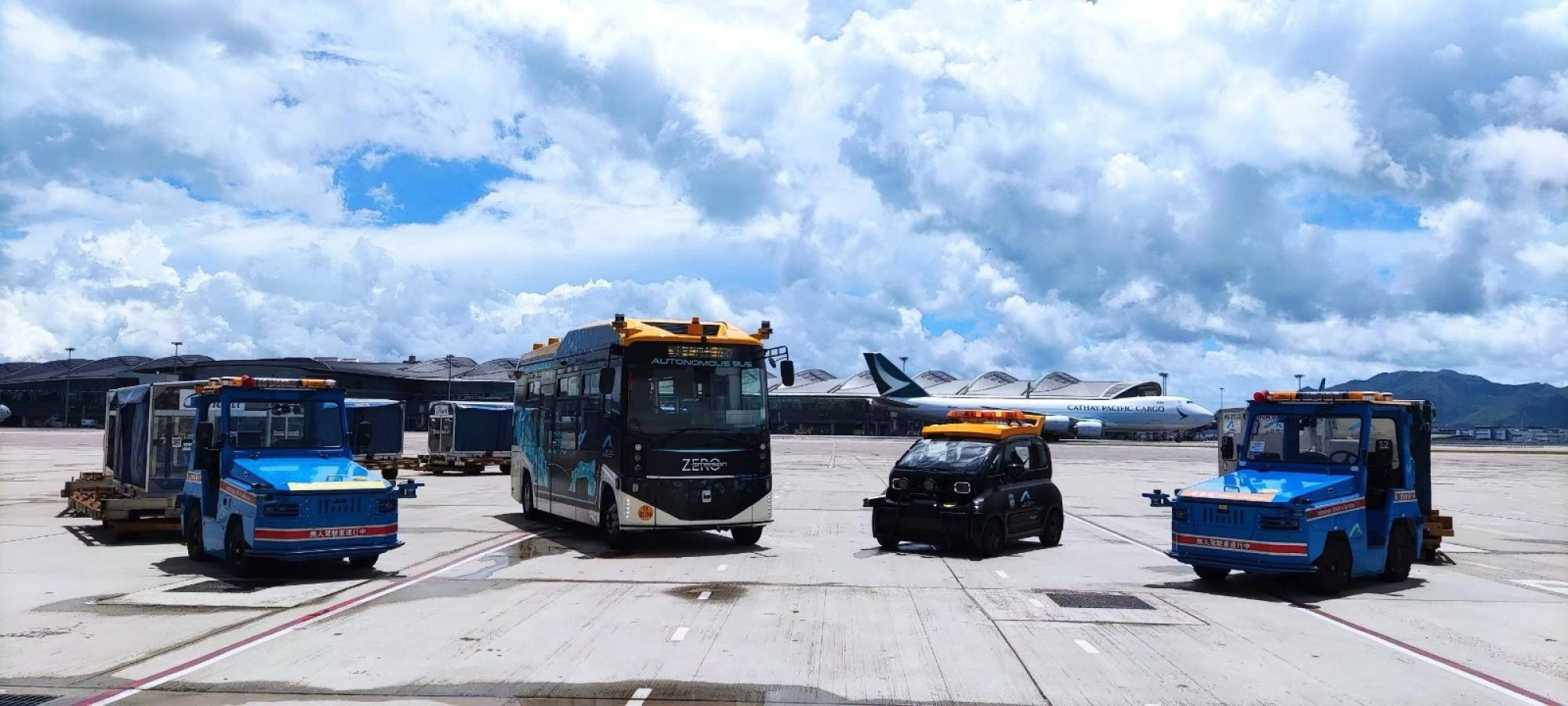
Hong Kong revs up autonomous vehicle push, allowing more flexible trials, usage on roads under new regulatory regime
- Transport chief Lam Sai-hung notes new regulatory framework for autonomous vehicles has come into effect
- Unmanned autonomous vehicles have taken ‘a new step’ on the roads in Hong Kong, he says
Hong Kong is allowing wider, more flexible trials and usage of autonomous vehicles on the roads under a new regulatory regime, the transport minister has said, as authorities seek to raise public acceptance of driverless cars.
Private car dealers welcomed the move and said they would consider bringing in more driverless vehicles, while an industry representative urged the government to do more to make autonomous driving easier in the city.
Secretary for Transport and Logistics Lam Sai-hung noted on Saturday that the new regulatory framework for autonomous vehicles had come into effect the previous day.
He said the Transport Department could waive the provisions of relevant regulations that were not applicable to such vehicles for the testing and pilot use of individual ones.
10 technology firms to establish base in Hong Kong: innovation chief
The measure would help the industry conduct more extensive and flexible testing of autonomous vehicles, and also obtain operation and application data under more complex road conditions, he said.
“The new autonomous vehicle regulatory system came into effect yesterday (March 1), which means that unmanned autonomous vehicles have taken a new step on the roads in Hong Kong,” he said in his official blog.
Transport authorities earlier made legislative amendments to allow wider and more flexible trials and usage of autonomous vehicles.
The department on Friday also issued a code of practice for the trial and pilot use of autonomous vehicles, which sets out detailed technical and operational requirements.

The new regulatory regime gives flexibility for research, testing and evaluation of autonomous vehicles, paving the way for their wider use locally in the future, according to authorities.
Lam said implementation of the new regulatory framework could help to push the industry to further test and find more applications for autonomous vehicles.
One example was an autonomous transport system to be built by the Airport Authority on its “Airport City Link”, a vehicular and pedestrian bridge, he said.
The system will connect the airport island and the Hong Kong Port artificial island to provide passenger services, and will be extended to Tung Chung city centre in the future.
Lam said the government would continue to push the industry to introduce more trials and pilot schemes, including tests for driving on public roads along with traditional vehicles.
HK$24 billion investment boost for Hong Kong’s I&T sector to drive tech economy
He said authorities would also provide more opportunities for residents to ride on autonomous vehicles to boost confidence in and acceptance of such cars.
Lam said the government had approved seven projects involving autonomous vehicles and the internet of vehicles technologies under the HK$1 billion Smart Traffic Fund, five of which had been approved since last year.
“Riding an autonomous vehicle in Hong Kong is no longer out of reach. I hope that everyone will have the opportunity to ride on autonomous vehicles being tested this year and experience the convenience of ‘smart transport’,” he said.
Promoting autonomous vehicles was among nine transport strategy recommendations put forward by the government last year.
Lam told a forum on Friday that residents would be able to experience the first tested autonomous vehicles on open roads by the end of this year.
Hong Kong has a huge demand for autonomous cars because of traffic congestion, and it is the direction of the smart city in the future
He said he would push trials of autonomous vehicles on small buses that could carry more than 10 passengers or so and covered a fixed route. He added that trials on taxis would be difficult because of their random routes.
Ringo Lee Yiu-pui, vice-president of the Hong Kong, China Automobile Association, said the new regulatory regime was a step forward as testing could be done on open roads. Previously trials were limited to a few restricted areas.
He said the industry welcomed the new framework as autonomous driving could help relieve driver shortages and reduce human error while individual car owners were willing to turn to unmanned vehicles for improved safety.
Lee said Hong Kong already lagged other countries and mainland China, where unmanned taxis were put on roads in some cities.
Lotus Tech to launch autonomous driving cars in 60 Chinese cities this year
He urged the government to invest more in the infrastructure needed for the operation of autonomous cars, such as radar and CCTV cameras, and introduce technologies from overseas and the mainland.
Eric Wong, CEO of electric vehicle dealer Richburg Motors, said his company had only imported cars without an autonomous driving function because of the strict regulations. But under the new regulatory framework, it would have many more options and would consider bringing in more autonomous vehicles, he said.
He said more than half of the company’s clients had expressed an interest in autonomous cars.
“Hong Kong has a huge demand for autonomous cars because of traffic congestion, and it is the direction of the development of the smart city in the future,” he said.

